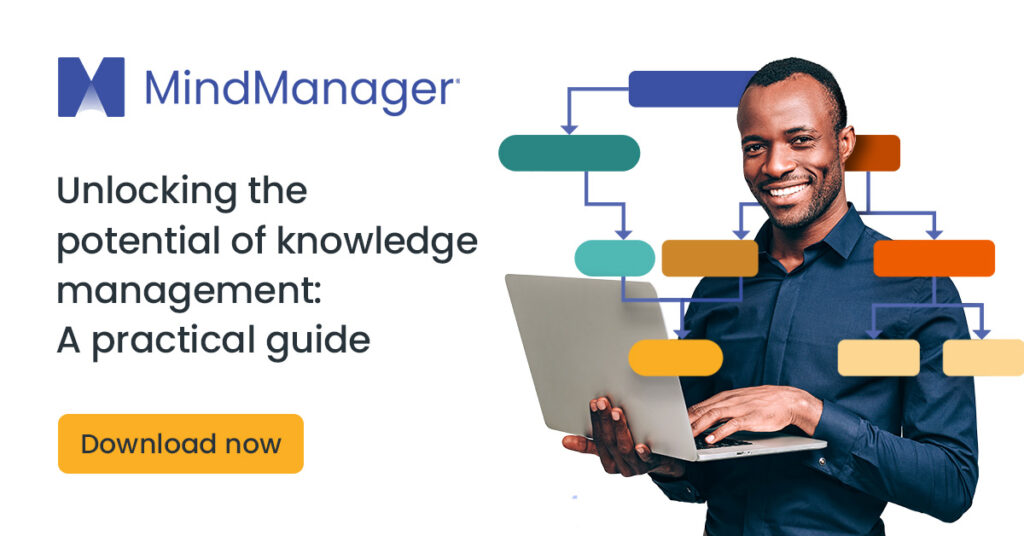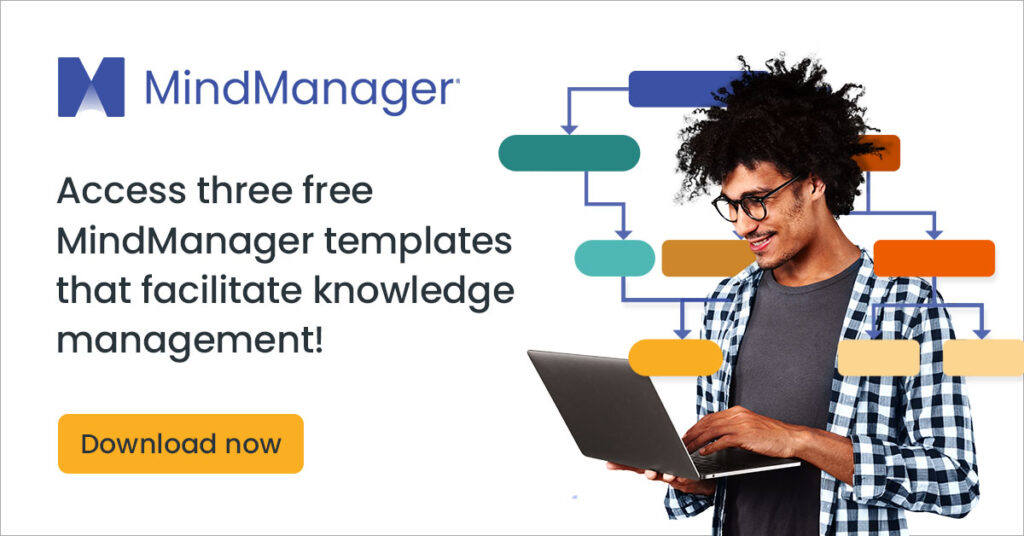It may seem rather obvious, but as an organization gains experience and expertise, it should inherently improve and profit over time. Every day, month, and year of operating an organization should be an opportunity to grow and learn from the past. This sentiment is what drives the theory of organizational learning.
By definition, organizational learning is the process of creating, capturing, retaining, and transferring knowledge within an organization to increase efficiency and adapt to an ever-changing environment. The theory of organizational learning revolves around the idea that learning results from experience. An organization is said to have learned from an experience when there is a clear, positive change in behaviour or performance.
One fundamental principle of organizational learning theory is that we all learn from our mistakes. The idea was created by Chris Argyris and Donald Schon, who suggested that learning happens within an organization through the process of finding and correcting errors. According to their notion, learning occurs within an organization when colleagues interact and work together.
Furthermore, organizational learning theory says that when you start encouraging organizational learning at the individual and small team levels, other employees will lead by example. Here, colleagues learn from one another so that corporate ideas and processes become company knowledge.

4 Major benefits of organizational learning
Organizational learning enables employees to share important information across groups of people and remote working environments. When in-person knowledge sharing isn’t an option, organizational learning can enable companies to:
- Efficiently train or onboard new employees
- Continuously increase innovations
- Improve operations
- Increase productivity, profits, and efficiency
- Learn collectively
- Lower turnover rates
- Increase job satisfaction
- Enhance adaptability throughout the organization
Other vital ways that organizational learning benefits an organization are as follows:
1. Increased innovation
Organizational learning theory says that leaders can foster innovation in the right environment but they can’t necessarily force it. For this reason, creating a work culture where employees have the space and time to let innovation occur naturally is the most ideal way to increase productivity. In addition, for an organization to grow, employees must feel that they can explore and pitch ideas, no matter how unconventional or “different” they may be.
According to organizational learning theory, cross-departmental collaboration and creative brainstorming will be more standard when open dialog is welcomed and encouraged. The idea is that, eventually, these conversations will reach the ears of leadership, who can then turn these creative ideas and concepts into a reality.
2. Improved problem-solving
One of the core principles of organizational learning is that teamwork makes the dream work. This commonly used phrase plays a substantial role in organizational learning. That’s because group collaboration is vital for knowledge sharing to be successful.
When employees come together to work towards and achieve a common goal, the chances of success multiply. If your organization is facing a complex or unprecedented challenge, encouraging each individual at your business to bring their own unique perspective and experience to the table may help you problem-solve more effectively.
3. Enhanced knowledge sharing
It’s nearly impossible for groups of people or employees to collaborate if they don’t understand the organization’s overall goals and objectives. For companies to succeed, groups and teams across an organization must have access to the information they need at the right time. Knowledge-sharing ensures that all employees are consistently on the same wavelength, which increases their chances of making critical improvements and innovations.
4. Strengthening community
One of the main benefits of organizational learning is cultivating a strong, healthy, and engaging community at your organization. When an individual’s ideas are taken seriously, and their feedback is taken into consideration, employees feel more confident and become more willing to contribute.
Increased confidence in one’s contributions inherently boost innovation within an organization. In addition, when employees have pride in themselves and their job, organizations can expect lasting benefits across the board.
Organizational learning vs. knowledge management
Organizational learning and knowledge management are relatively similar concepts but have a few key differences. According to IBM, knowledge management (KM) can be defined as “the process of identifying, organizing, storing and disseminating information within an organization.”
This definition sounds incredibly similar to the working definition of organizational learning that we mentioned in our intro (the process of creating, capturing, retaining, and transferring knowledge within an organization to increase efficiency and adapt to an ever-changing environment)…
There are three main implications of a successful knowledge management system:
- Organizations must understand how to cultivate an effective learning environment.
- Organizations must be able to recognize how and why something has been learned.
- Organizations must try to make sure that the learning that occurs is helpful to the organization.
Many people argue that knowledge management enables organizations to learn. That’s because organizational learning is made possible when knowledge management is successful. This theory positions knowledge management as the method of achieving organizational learning. Put simply, organizations must be able to learn to reach their goals but can only do so if they have a solid knowledge management system in place.
According to an article from the Journal of Knowledge Management, academics explained the relationship between the two concepts as “the characteristic processes of organizational learning (OL) is knowledge creation and knowledge acquisition, although other processes are also relevant to this field such as knowledge transfer. The current definitions of knowledge management (KM) include knowledge generation and acquisition processes, which correspond to what was previously called OL historically.”
The most popular working theory is that knowledge management and organizational learning work hand in hand. Together, they enable organizations to succeed through combined and collective knowledge by cultivating a space where individual thought matters and is encouraged.

MindManager as a solution for effective organizational learning
MindManager® helps to simplify knowledge management and organizational learning within a company. Using MindManager, shared knowledge and valuable information are organized in centrally available, easy-to-grasp diagrams and charts (and the software includes pre-built templates to further simplify the process).
Maps created in MindManager can sync automatically with other popular applications for easy collaboration and accessibility. In addition, it enables collaboration thanks to synchronization capabilities, which helps users to bring information from systems like SharePoint and Outlook into context to better understand dependencies.
These features make it possible for users to capture knowledge and information on various maps, charts, diagrams, and other visuals depending on the content and purpose. MindManager’s visual representations of concepts, ideas, and data enable teams to better understand, utilize, share, and communicate key organizational knowledge.
Discover how MindManager can better enable organizational learning at your organization!
In addition, read our e-book or listen to our free webinar to find out more about knowledge management!

